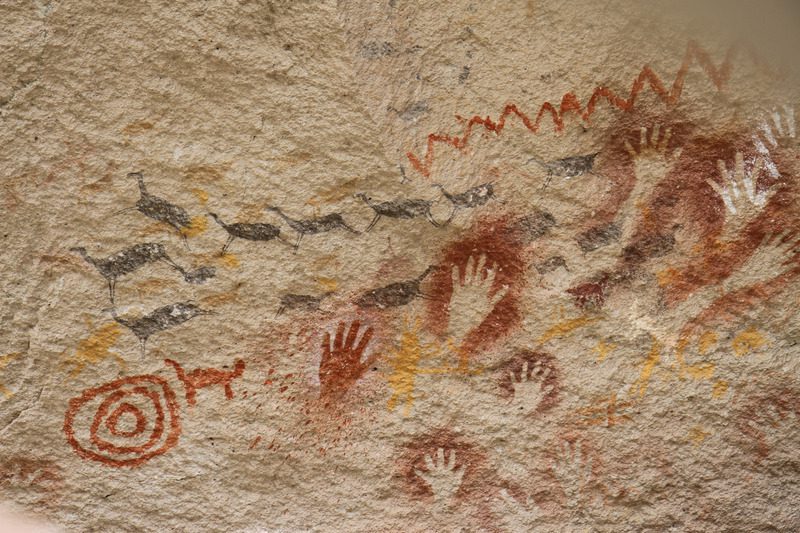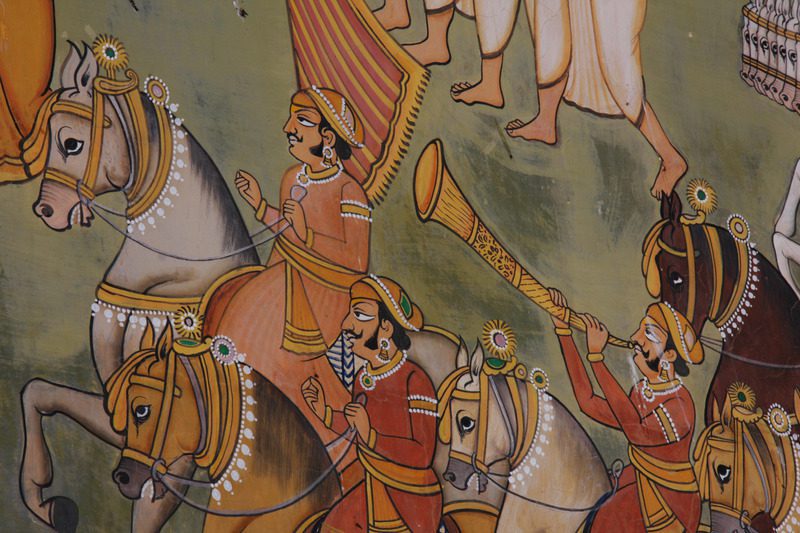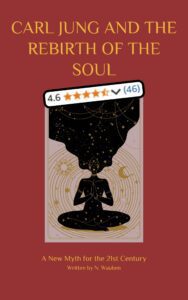Table of Contents
Introduction
In a previous article we have discussed Joseph Campbell’s philosophy in relation to the theories presented by Ernest Becker. In his book The Denial of Death Ernest Becker observed that modern man finds himself in a problematic situation because our current societies do not sufficiently provide us with the necessary possibility to be a hero. Joseph Campbell’s philosophy was introduced as a remedy to this crisis of heroism. Joseph Campbell argued, in his book The Hero with a Thousand Faces, that we should reconsider the modern hero-deed: “The hero-deed to be wrought is not today what it was in the century of Galileo. Where then there was darkness, now there is light; but also, where light was, there now is darkness. The modern hero deed must be that of questing to bring to light again the lost Atlantis of the co-ordinated soul.” (p.334) In this article we will analyse Joseph Campbell’s philosophy further and discuss why Joseph Campbell emphasized the importance of myths so much.
“It would not be too much to say that myth is the secret opening through which the inexhaustible energies of the cosmos pour into the human cultural manifestation.” (Joseph Campbell, The Hero with a Thousand Faces, p.1)
Myths
Joseph Campbell believed that myths and mysteries are of crucial importance to humanity. In his book The Inner Reaches of Outer Space Joseph Campbell described myths as:
“Productions of the human imagination. Their images, consequently – though derived from the material world and its supposed history – are, like dreams, revelations of the deepest hopes, desires and fears, potentialities and conflicts, of the human will – which in turn is moved by the energies of the organs of the body operating variously against each other and in concert. Every myth, that is to say, whether or not by intention, is psychologically symbolic. Its narratives and images are to be read, therefore, not literally, but as metaphors.” (p.28)
According to Joseph Campbell it is easy to label myths and mysteries as lies. However, myths are based on a different kind of ‘truth’, which can only be understood by the soul. By rationally labelling them as lies, we deprive the soul, and the world in its entirety, from another level of meaning that is of equal importance to our existence: “The only generally recognized correction as yet proposed has been the no less wrongheaded one of dismissing the metaphors as lies, thus scrapping the whole dictionary of the language of the soul by which mankind has been elevated to interests beyond procreation, economics, and “the greatest good of the greatest number.” (p.31)
Although myths and mysteries are therefore today quickly disposed of as false, Joseph Campbell argued that every individual is still a carrier of these mythological realms. In this sense Joseph Campbell was influence by Carl Jung’s idea of the collective unconscious. Carl Jung believed that every individual’s unconscious is composed of several collective archetypes, which are present in every individual.

Myths and the Unconscious
Joseph Campbell made this theory more accessible by indicating that these archetypes are related to myths. These ‘myths’ are present within the unconscious of every individual. Joseph Campbell argued that the unconscious is comprised of all sorts of mysterious ‘forces’: “The unconscious sends all sorts of vapors, odd beings, terrors, and deluding images up into the mind – whether in dream, broad daylight, or insanity; for the human kingdom, beneath the floor of the comparatively neat little dwelling that we call our consciousness, goes down into unsuspected Aladdin caves.” (The Hero with a Thousand Faces, p. 5)
These unconscious forces can be extremely dangerous in the sense that they can appear suddenly, because of a certain smell, the sight of some object or the look of a passer-by on the streets. These events might touch, according to Joseph Campbell a ‘magic spring’: “and then dangerous messengers begin to appear in the brain.” (Ibid) These are dangerous because they can suddenly threaten the apparent secure world of the conscious mind. However, according to Joseph Campbell, they can be of major importance to us because they open our minds to the mystical world: “They are fiendishly fascinating too, for they carry the keys that open the whole realm of the desired and feared adventure of the discovery of the self.” (Ibid)
As a result, they might lead to the destruction of our secure world in which we are consciously residing. They might then, however be used to completely recreate our world more fully, because our world will be based upon something which transcends our role in society: “Destruction of the world that we have built and in which we live, and of ourselves within it; but then a wonderful reconstruction, of the bolder, cleaner, more spacious, and fully human life—that is the lure, the promise and terror, of these disturbing night visitants from the mythological realms that we carry within.” (p.5)
It is up to us to decide whether we pay attention to this other realm or not, however, if we do so, according to Joseph Campbell, an entirely different reality is presented:
“If the witness is prepared, there ensues a transfer of self-identification from the temporal, reflecting body to the sunlike, eviternal source, and one then knows oneself as consubstantial with what is of no time or place but universal and beyond death, yet incarnate in all being everywhere and forever; so that was we again may read in the Upanisad: tat tvam asi, “Thou art that.”” (p.32)
The Key to the Mystic Realm
Carl Jung focused to a large extend on the negative consequences resulting from a split between one’s conscious and unconscious. As you may have read in my article on The Importance of the Unconscious. Carl Jung even observed that, such as split, if it is widely spread among the population, can result in mass-hysteria:
“The ever-widening split between [the] conscious and unconscious increases the danger of psychic infection and mass psychosis. With the loss of symbolic ideas the bridge to the unconscious is broken down. Instinct no longer affords protection against unsound ideas and empty slogans. Rationality without tradition and without a basis in instinct is proof against no absurdity.” (Aion, p.248)
Joseph Campbell, however, focused more on the positive consequences of more attention being paid to the unconscious. Mainly in the sense that it is a key to the mystic realm. Similarly to Carl Jung, Joseph Campbell saw symbolic ideas, such as myths, as a bridge between the conscious and unconscious realms.
Furthermore, according to Joseph Campbell, the mythic realm is as much part of the world as the worldly realm with which we are so familiar: “The two kingdoms are actually one. The realm of the gods is a forgotten dimension of the world we know. And the exploration of that dimension, either willingly or unwillingly, is the whole sense of the deed of the hero.” (The Hero with a Thousand Faces, p.188) This exploration is heroic because, in this other dimension, one’s secure conscious world will be completely deconstructed: “The values and distinctions that in normal life seem important disappear with the terrifying assimilation of the self into what formerly was only otherness.” (Ibid)
However, the hero that manages to transcend the conscious realm, faces a problem similar to the problem described by Plato in his Allegory of the Cave. Joseph Campbell argued that the hero, upon his return, should share his discoveries with the rest of the world. However, Joseph Campbell indicated that it might be impossible to define these discoveries in usual worldly terms: “How translate into terms of “yes” and “no” revelations that shatter into meaninglessness every attempt to define the pairs of opposites? How communicate to people who insist on the exclusive evidence of their senses the message of the all-generating void?” (Ibid, p.189)

How to Discover the Other Realm?
Joseph Campbell argued that all true religious practices are directed to the discovery of these other mystic realms. They do so in almost identical ways:
“The individual through prolonged psychological disciplines, gives up completely all attachment to his personal limitations, idiosyncrasies, hopes and fears, no longer resists the self-annihilation that is prerequisite to rebirth in the realization of truth, and so becomes ripe, at last, for the great at-one-ment. His personal ambitions being totally dissolved, he no longer tries to live but willingly relaxes to whatever may come to pass in him; he becomes, that is to say, an anonymity. The Law lives in him with his unreserved consent.” (p.205)
I believe that this is something that becomes increasingly more difficult as we continue to develop our societies further. Instead of being more a part of this world, or consciously living within this world, we are living more and more outside of it. I suppose we can blame technological advancements for this, but I believe that this process has started a lot earlier, perhaps with the development of agriculture. As Henry David Thoreau also indicated in his book Walden: “But Lo! Men have become the tools of their tools. The man who independently plucked his fruits when he was hungry is become a farmer; and he who stood under a tree for shelter, a housekeeper. We now no longer camp as for a night, but have settled down on earth and forgotten heaven.” (p. 33)
Joseph Campbell Made a similar observation by arguing that, today, the individual is the focal point of all meaning. In the past all meaning was in groups of people or in the world:
“The problem of mankind today, therefore, is precisely the opposite to that of men in the comparatively stable periods of those great co-ordinating mythologies which now are known as lies. Then all meaning was in the group, in the great anonymous forms, non in the self-expressive individual; today no meaning is in the group – none in the world: all is in the individual.” (The Hero with a Thousand Faces, p.334))
This shift of meaning, however, is problematic, according to Joseph Campbell, because, within the individual, this meaning is largely unconscious and the forces that were previously known to be compelling the world forward, are now unknown: “But there meaning is absolutely unconscious. One does not know toward what one moves. One does not know by what one is propelled. The line of communication between the conscious and the unconscious zones of the human psyche have all been cut, and we have been split in two.” (The Hero with a Thousand Faces, p.334)
Traditional myths have been replaced by state-religions, patriotism, and work-life. According to Joseph Campbell it is necessary to re-introduce myths in such a myth-less society: “Such a monkey-holiness is not what the functioning world requires; rather, a transmutation of the whole social order is necessary, so that through every detail and act of secular life the vitalizing image of the universal god-man who is actually immanent and effective in all of us may be somehow made known to the consciousness.” (p.335)
Joseph Campbell believed that such a new myth can be found within the individual: “Not the animal world, not the plant world, not the miracle of the sphere, but man himself is now the crucial mystery. Man is that alien presence with whom the forces of egoism must come to terms, through whom the ego is to be crucified and resurrected, and in whose image society is to be reformed.” (The Hero with a Thousand Faces, p.337)
Conclusion
Joseph Campbell observed that myths serve an important role as a bridge to the unconscious. Although myths are not true in the usual way in which the term is used, they are true in a different way. They can have an important function as a metaphor, thereby illustrating a much deeper truth, compared to what we are able to comprehend at first.
We do, however, no longer belief in myths because, for us to believe in something, it has to be scientifically true. As a result of this development, we have lost an important bridge to our unconscious. As I discussed in my article on the importance of the unconscious, we must be carful not to neglect our unconscious world.
Sadly, no replacement has been found for the role that myths used to play in this regard. As Joseph Campbell indicated, religion, patriotism, or consumerism are not capable of filling this void. Joseph Campbell argued that we must look inward to fill this gap, our own presence in this world is the greatest mystery at this moment. It is up to the modern hero to solve this mystery and present his or her discoveries to the world, thereby saving society from its emptiness: “It is not society that is to guide and save the creative hero, but precisely the reverse. And so every one of us shares the supreme ordeal – carries the cross of the redeemer – not in the bright moments of his tribe’s great victories, but in the silences of his personal despair.” (The Hero with a Thousand Faces, p.337)

